|
|

After logging in, you can check your balance on the Wallet page. Manage your digital currency with ledger live download for Mac. Ledger Live is available for both desktop and mobile devices, ensuring you have access to your crypto portfolio anytime, anywhere.SPEAKERS
|
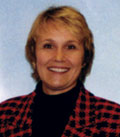 |
Beth Nelson NAFA President - National Alfalfa & Forage Alliance
is an alfalfa and forage industry trade association headquartered in St. Paul, Minnesota.
Its mission is to ensure the ability of all segments of the alfalfa and forage industry to compete effectively and profitably,
domestically and abroad. NAFA is an alliance of state and regional affiliate organizations, industry, and university/research partners. |
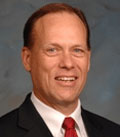 |
Rick Tolman NCGA CEO - National Corn Growers Association
is a producer directed trade association headquartered in St. Louis, Missouri. Its mission is to create and increase opportunities for corn growers. NCGA is a federation of state organizations, corn boards, councils and commissions that develops and implements policies and programs on a state and national level to help protect and advance the corn producer's interests. |
|
TUESDAY, JUNE 29
|
| 12:45 p.m. |
Welcome
Beth Nelson, National Alfalfa & Forage Alliance (NAFA)
Rick Tolman, National Corn Growers Association (NCGA)
Tom Buis (Moderator), Growth Energy
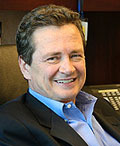 |
Tom Buis is a former President of the American National Farmers Union (NFU)
and is current CEO of Growth Energy. Before moving to NFU Buis served as the Senior Agriculture Policy Advisor for Senate Majority Leader Tom Daschle.
Growth Energy is committed to the promise of agriculture and growing America’s economy through cleaner, greener energy.
Growth Energy members recognize America needs a new ethanol approach. Through smart policy reform and a proactive grassroots campaign,
Growth Energy promotes reducing greenhouse gas emissions, expanding the use of ethanol in gasoline, decreasing our dependence on foreign oil,
and creating American jobs at home. |
|
| 1:15 p.m. |
Alfalfa: A Companion Crop with Corn, Hans Jung, USDA-ARS, St. Paul
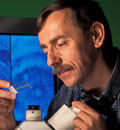 |
Hans Jung received his Ph.D. in Animal Science from the University of Ilinois.
He spent four years as a Research Animal Scientist at the USDA-ARS U.S.
Meat Animal Research Center in Nebraska working on forage utilization and grazing by cattle and sheep.
He joined the USDA-ARS Plant Science Research Unit in St. Paul, MN, in 1986 as a Research Dairy Scientist and also
as a cluster scientist of the U.S. Dairy Forage Research Center in Madison, WI. Jung’s research career has focused
on how plant cell wall chemistry limits forage digestibility and, since 1993, has spent increasing amounts of time on biomass energy research. |
|
| 1:45 p.m. |
Alfalfa Management & Yield, Craig Sheaffer, University of Minnesota
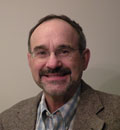 |
Craig Sheaffer, Professor in the Department of Agronomy and Plant Genetics at the University of Minnesota works with:
research and education; alfalfa and forage management; sustainable cropping systems; and is the director of the sustainable agriculture graduate program.
Dr. Sheaffer has extensive experience developing and managing forage crops, grasses and native perennials, and works closely with an interdisciplinary
group of faculty, students, and non-profit organizations in exploring alternative crops for more sustainable agricultural systems. |
|
| 2:15 p.m. |
Harvest, Storage, & Fractionating Alfalfa, Kevin Shinners, University of Wisconsin-Madison
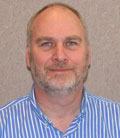 |
Kevin Shinners is currently a full-professor in the Department of Biological Systems Engineering at
the University of Wisconsin-Madison. His current research efforts concentrate on developing more efficient means of harvesting,
processing, handling, storing and transporting biomass feedstocks; improving machines and systems for harvesting high-quality hay and forage;
and sensors and systems for precision farming as it applies to hay, forage, and biomass production. He currently serves as Vice-Chair for the
Department of Biological Systems Engineering. |
|
| 2:45 p.m. |
Economics of Alfalfa/Corn Systems, Dan Undersander, University of Wisconsin-Madison
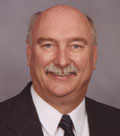 |
Dr. Undersander received his PhD degree from Purdue University. He is the University of Wisconsin
extension/research forage agronomist and he coordinates the multi-department Extension forage team. He conducts the largest
forage variety trials in the U.S. He conducts research on grazing, forage production and utilization, and near infrared reflectance (NIR)
prediction of forage quality and other parameters. Dan has worked with farmers across North and South America and Eastern Europe.
He is involved with several regional and national organizations and activities. He has published over 1,000 articles. He is a fellow in
both the American Society of Agronomy and Crop Science Society of America. |
|
| 3:15 p.m. |
Break |
| 3:30 p.m. |
Ethanol from Alfalfa, Bruce Dien, USDA-ARS, Peoria
 |
Dr. Dien received a PhD in Biochemical Engineering from the University of Minnesota.
He is a lead scientist for one of the units researching biofuels at the National Center of Agricultural Research.
His research is focused on conversion of bioenergy crops, including alfalfa, into biofuels. He is currently working
with ARS plant production researchers to develop integrated processes for conversion of lignocellulosic biomass into
sugars and bioethanol. He has previously worked on processing corn and corn fiber products into ethanol as well as
microorganism development for fermentation of sugar mixtures into bioethanol. |
|
| 4:00 p.m. |
Compatibility with Corn: N Credits, Michael Russelle, USDA-ARS, St. Paul
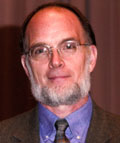 |
Since receiving a PhD from the University of Nebraska, Michael Russelle has been a
Research Soil Scientist with the USDA-ARS, St. Paul. He is also affiliated with the U.S. Dairy Forage Research Center in Madison, WI,
and is an Adjunct Professor in the Department of Soil, Water, and Climate, at the University of Minnesota. His research has focused
on improving nutrient cycling in mixed livestock-cropping systems to improve profitability and reduce off-site contamination.
Alfalfa, corn, and grass forages have been the principal crops in his research. He has identified value-added functions for
perennial forages in cropping systems, including the use of alfalfa and grass forages to remove excess nitrate from soil and water. |
|
| 4:30 p.m. |
Soil Carbon, John Baker, USDA-ARS, St. Paul
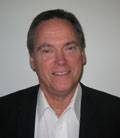 |
John Baker is the Research Leader for the USDA-ARS Soil & Water Management Unit in St. Paul, Minnesota,
and an Adjunct Professor in the Department of Soil, Water & Climate at the University of Minnesota. His educational background is
in soil physics and micrometeorology, and in recent years his research has been focused on the exchange of trace gases and
the cycling of carbon in agricultural systems. This has included traditional corn-soybean rotations, as well as alternative
systems with winter cover crops and permanent living mulches. |
|
| 5:00 p.m. |
Cellulosic Ethanol Economics & Carbon Footprint, John Miranowski, Iowa State University
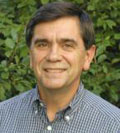 |
John Miranowski is Professor of Economics
at Iowa State University in Ames, Iowa. He received his B.S. from
Iowa State University, and received both his M.A. and PhD from Harvard
University in economics. He teaches and publishes on natural resource
and environmental economics (including biofuel economics, policy,
and rural development). He has also served as USDA’s Economic Research
Service division director where he led a $12 million policy research
and analysis program in environmental, resource, and technology
economics. He received the USDA Distinguished Service Award for
Biofuel Program Development. |
|
| 5:30 p.m. |
Ethanol Producer/Enzyme
Panel
Charles Abbas, ADM
Bob Randle, Genencor, A Danisco Division
Thomas Robb, Abengoa Bioenergy Corporation
Owen Shunkwiler, POET
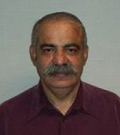 |
Charles Abbas is ADM’s Director of Yeast and Renewable Research. His areas include bioprocessing of commodity crops and their residues to produce high value-added products; development of yeast strains for industrial fermentations; and large-scale fermentation production of ethanol, polymers, amino acids, enzymes, vitamins, carotenoids and organic acids using bacterial, fungal, and algal systems. He received the Alltech Medal of Excellence for Alcohol Production in 2001. He received his PhD in Microbiology & Cell Science with Biochemistry as a supporting area from the U of Florida. |
| |
 |
Bob Randle serves in the role of Commercial Development, Fuel Ethanol for Genencor, a Danisco Division. He works with existing and proposed ethanol plants throughout the U.S. Most of the ethanol plant development work is using corn as the feedstock, but Bob also has innovative projects using other cereal grains, combined feedstocks and non-traditional feedstocks. Coming from the corn wet milling industry, Bob has a keen interest in projects using fractionated feedstocks, creating higher value co-products. Bob received his M.S. in Environmental and Civil Engineering at the University of Illinois-Champaign. |
| |
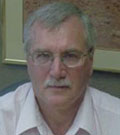 |
Thomas Robb is manager of Institutional Relations for Abengoa Bioenergy Corporation. From 1981-1984, he was an Asst Professor with NCSU stationed in Brazil as a collaborative research program leader. In 1985, he joined IMC Corp in its animal health division as International Technical Service Manager. He became Research and Development Project Manager and then Business Unit Manager for all North American cow/calf products. He joined Ivy Animal Health in 1999 leading business development and acquisitions. In 2000, he joined ImmTech to lead bovine sales, marketing, and technical services. He joined Abengoa in 2004. He received his PhD from the University of Kentucky in ruminant nutrition. |
| |
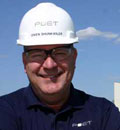 |
Owen Shunkwiler has been General Manager of POET Biorefining – Coon Rapids, Iowa since its startup in 2002.
In 2005, he oversaw installation of new technology including POET’s patented BPX (which eliminates "cooking" from the process)
and BFrac (fractionation). He promotes jobs at home in Iowa and decreasing our dependence on foreign oil through greater ethanol use.
He represents the plant on the board of Iowa Renewable Fuels Association, Iowa Ethanol Producers Association, and Growth Energy. |
|
|
WEDNESDAY, JUNE 30
|
| 8:00 a.m. |
Opening Remarks
|
| 8:15 a.m. |
Corn Yield Boost, Joe Lauer, University of Wisconsin
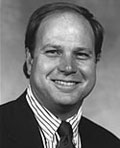 |
Dr. Lauer received his Ph.D. in Agronomy from the University of Minnesota. He is currently a professor
of agronomy and state extension agronomist focusing on developing relevant corn management programs that
address needs expressed by Wisconsin farmers. Specific objectives focus on management decision-making regarding
crop productivity, quality, and production system efficiency including hybrid selection, rotation, tillage,
and replant and yield loss damage assessments. His emphasis is on impacts of cropping practices on grower profitability,
the environment, and natural resource conservation. |
|
| 8:45 a.m. |
Roundtable Reports
|
| 10:15 a.m. |
Break |
| 10:15 a.m. |
Identify a Steering Committee & Develop an Action Plan
|
|